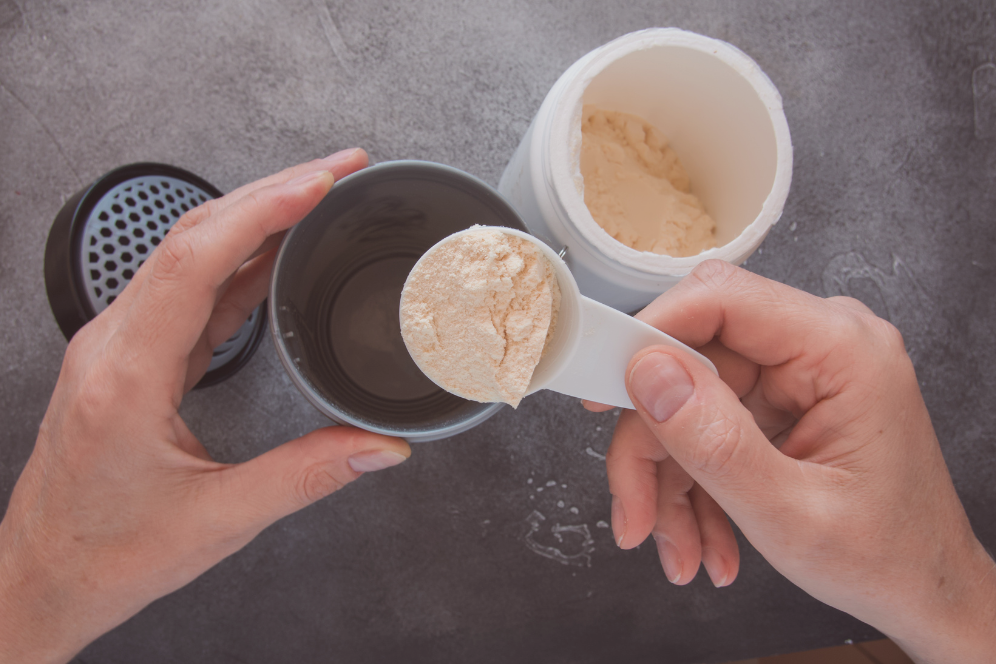Plant proteins are a rich source of essential amino acids that our bodies cannot produce on their own. These amino acids are vital for various bodily functions, including tissue repair and immune function. Unlike most animal proteins, plant proteins often contain all nine essential amino acids, making them a complete protein source and they may avoid indigestion, bloating and weight gain.
Protein an essential need
Plant proteins are often packed with essential vitamins and minerals, including iron, magnesium, and folate, which are particularly important for women's health. They are typically lower in saturated fat and cholesterol compared to animal proteins. This can be beneficial for heart health, as diets high in saturated fats and cholesterol can increase the risk of heart disease. Additionally, many plant proteins are high in fiber, which can aid in digestion and help maintain healthy weight. Fiber-rich diets are also associated with a lower risk of developing heart disease, type 2 diabetes, and certain types of cancer.
Low in Saturated Fats
Unlike animal proteins, plant proteins are low in saturated fats and devoid of cholesterol, making them a heart-healthy choice. They can help lower LDL (bad) cholesterol levels, reduce blood pressure, and decrease the risk of heart disease.
Low glycemic Index
Plant proteins, like those based on lentils, and peas, or brown rice have a low glycemic index, meaning they cause a slower, more steady rise in blood sugar levels. This can be beneficial for women with or at risk of developing diabetes.
Bone strength
Plant-based proteins also contribute to bone health. They are rich in nutrients like calcium and vitamin K, which are essential for bone strength and density. This is particularly important for women as they are at a higher risk of osteoporosis, especially post-menopause.
Packed with nutrients
Plant proteins are packed with various nutrients, including vitamins, minerals, and antioxidants. These nutrients can help protect against chronic diseases, boost the immune system, and promote overall health. Legumes, a common source of plant protein, are rich in iron, zinc, and folate.
Nutritionist at Gytree notes that protein powders made from combination proteins like brown rice and golden peas can complete the amino acid needs of every woman without leading to bloating, indigestion and other side effects.
Chahat Vasdev says - Being a nutritionist I always recommend women to take Protein powder, because Protein is not just for body builders it’s for everyone. Our body requires 9 essential amino acids that cannot be produced on their own. Protein is essential for overall health and should be supplemented through food or protein powder for easy absorption.
Increased energy levels
Women using Gytree's protein powder, which is vegan, dual-plant based and lactose free, have reported improved energy levels and less tiredness. Pratibha Singh who works as an HR head in Navi Mumbai has been consuming Gytree's dual plant based protein for the last six months. "I love the taste and have seen a clear impact on my energy. In fact I now use it as a breakfast replacer."

Of a survey done with over 100 women over sixty days, we found many women reported reduced hairfall (because protein is needed to ensure strong hair growth and vitality) and improved PCOS management.
Muskan Parekh was facing hair fall and shin bone aches when we she discovered Gytree's protein packed with six super herbs. "From the first pack itself, I have seen a measured change in my pain levels which were caused due to protein deficiency. I was surprised to see hair fall reduction but later realised that hair has keratin and improved protein levels always stem that issue."
Plant based proteins are gaining popularity around the world because they are healthier, better on the gut and just simpler to consume. Women's protein needs are different because their bodies are different and it's only fair they choose something that truly helps their hormonal balance.
Consuming plant-based proteins can contribute to a healthier environment. The production of plant proteins requires less water and land, and emits fewer greenhouse gases compared to animal protein production. Thus, choosing plant proteins not only benefits women's health, but also the health of our planet.







